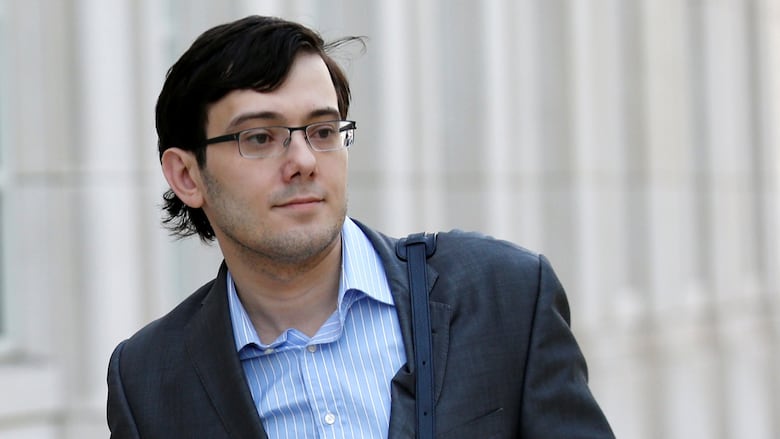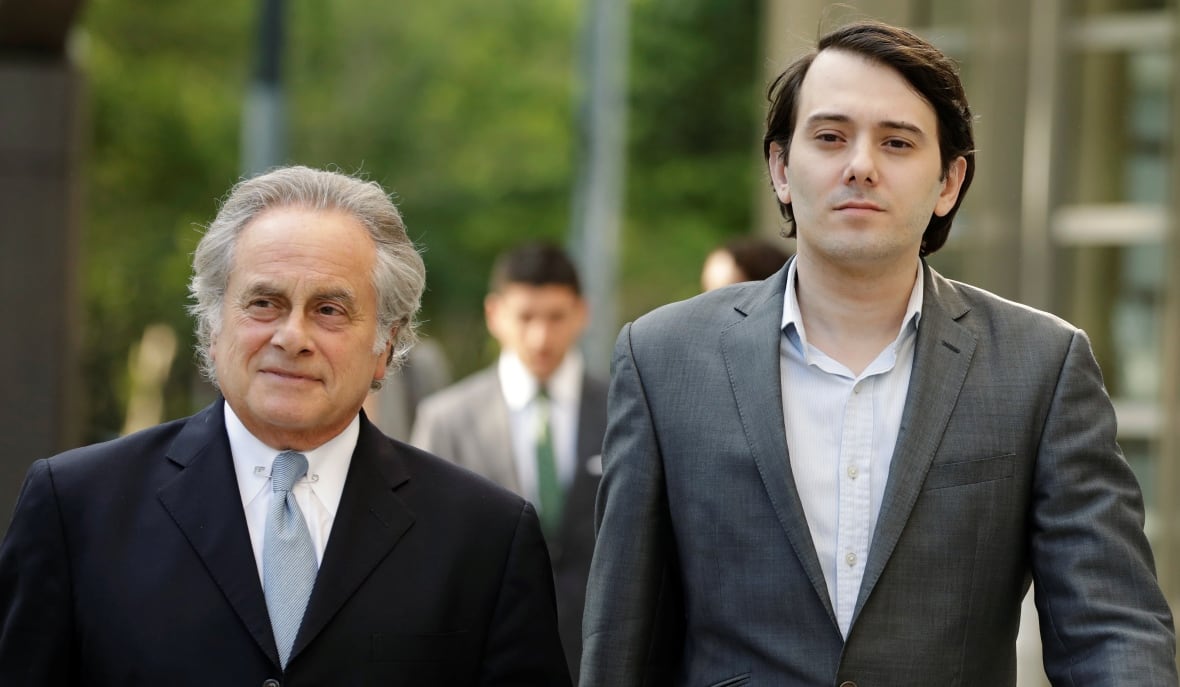$65M at stake in fraud trial for 'Pharma Bro' Martin Shkreli
Defence attorney calls CEO who raise price of drug by 5,000% an eccentric genius

The defence lawyer for Martin Shkreli says the former pharmaceutical CEO would lose a $65-million US stake in a drug company he founded if he's convicted at his securities fraud trial.
Attorney Ben Brafman told jurors Friday during closing arguments in federal court in New York that a drug company official who testified against Shkreli was biased, because if Shkreli is convicted of a felony, the company would get to keep his stake.
Shkreli, 34, is best known for raising the price of anti-infection drug Daraprim by 5,000 per cent in 2015 when he was chief executive of Turing Pharmaceuticals.
'Pharma Bro' or just misunderstood?
Jurors were presented with starkly opposite portrayals of Shkreli in court on Thursday, with a prosecutor casting him as a serial liar and his own lawyer calling him a well-meaning but misunderstood genius.
"If Martin Shkreli wanted to defraud these people, why didn't he defraud them?" Shkreli's lawyer Benjamin Brafman said in his closing argument in Brooklyn federal court, reminding jurors that the investors who testified in the month-long trial made money.
- 'Pharma bro' Martin Shkreli excited for trial as jury selection begins
- Shkreli was shady — and profitable, investors testify
Brafman is expected to finish his arguments today. Jurors will then receive instructions from U.S. District Judge Kiyo Matsumoto before beginning deliberating.
The charges he now faces relate to Shkreli's management of his previous drug company, Retrophin Inc, and hedge funds MSMB Capital and MSMB Healthcare, between 2009 and 2014.

Assistant U.S. Attorney Alixandra Smith began Thursday with prosecutors' closing argument, telling jurors that Shkreli wooed investors by falsely claiming that MSMB Capital had an outside auditor and managed assets worth tens of millions of dollars.
Smith said Shkreli lost all the investors' money in 2011, but hid the loss from them. She said Shkreli used his other fund, MSMB Healthcare, to funnel money into Retrophin, which he founded in 2011.
Eventually, Smith said, Shkreli paid back investors with shares and cash from Retrophin, using fraudulent settlement and consulting agreements that were not approved by the company's directors.
"It was a way to pull money out of Retrophin, a public company, to pay back debts that were owed by the defendant," she said of one consulting agreement.
'It doesn't look great'
Brafman acknowledged that Shkreli was not always truthful with investors.
"On paper, yeah, you know what, it doesn't look great," he said.
But he described Shkreli as an eccentric genius obsessed with building a drug company that would cure rare childhood illnesses, who acted in "good faith."
"He was always truthful to the mission, and the mission was Retrophin," he said.
Brafman repeatedly called the complaints of investors who made money "rich people B.S." He also attacked Retrophin's directors, saying they ousted Shkreli as CEO in 2014 after profiting from his work.